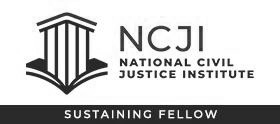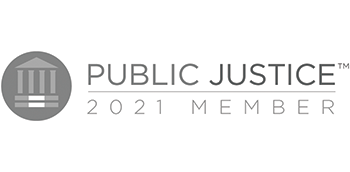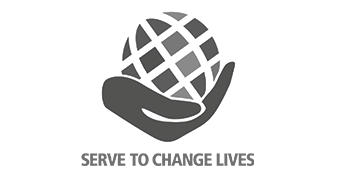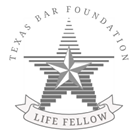You might feel a bit anxious or uncertain when you begin taking legal action. Or even wary of hiring a lawyer. We get it. Understanding the process helps, so you know what to expect when you choose to work with Hendler Flores Law. Here are the main steps in the lawsuit process:
1. Preliminary Interview with a Lawyer
During the preliminary interview, a Hendler Flores lawyer will ask questions to decide if you have a case:
- Specifics about your injury (why, how, when, and where)
- The circumstances that caused your injury (the why, how, when, and where of the exposure)
- The effect that your injury has had on you and your family – physically, financially, and emotionally
2. Formal Agreement of Representation
If you decide to hire Hendler Flores Law, we request that each of our clients enter into a written agreement that spells out the terms of our relationship. You may also need to sign release forms that allow us to access personal records needed for your lawsuit, such as medical and social security records. If we plan to bring in other lawyers to make your case stronger, we will ask for your written permission.
3. Preliminary Investigation
During this phase we investigate the basic facts of your case and collect proof of your injury. Depending on the details of your case, this can include:
- Ordering a summary of your medical records
- Reviewing your prescription records
- Obtaining proof of product purchase or ownership
- Obtaining proof of exposure to a toxic substance
In this phase we may need your help gathering information and documents, and we may ask you to preserve evidence that could be important in your case. Please respond right away if we ask you for assistance. Your responsiveness and participation helps us move your case along more quickly.
Once we’ve received all the necessary documents, we review them carefully to decide what additional information and research needs to be gathered in the next phase.
4. Secondary Investigation
During the second investigation phase we conduct a more detailed assessment of your injury and your case. Our legal team will request complete copies of your medical records and medical billing information. We will also send you a detailed client questionnaire to complete. This information will help us determine what additional documents and research are required to develop a strong case for you.
At this stage we generally consult with medical and legal experts to get a better understanding of the facts and evidence in your case. By the end of this phase we will have the necessary research and information to begin drafting your lawsuit.
5. File Lawsuit
During this phase our legal team drafts your lawsuit and decides where your lawsuit should be filed. This decision involves several considerations including:
- Where were you injured?
- Where is the responsible party located?
- What location may offer the best chance for a positive outcome?
The location in which your lawsuit is filed can have a big impact on the outcome of your case.
Once the location is chosen, we file your lawsuit with the court. After that we “serve” all the listed defendants, which means we officially hand over the legal documents to the other party so they know we’ve filed a lawsuit against them. This step can take some time, especially if we’re having a difficult time locating a defendant.
After defendants are served, they have 30 days to file an answer, but they often ask for more time. Once we’ve received their answers, we move into the discovery phase.
6. Discovery
Discovery is the formal legal process for collecting evidence about your case. Specific rules of the court control this process, and a lot happens during the discovery phase. Hendler Flores Law will create a game plan – a case strategy – to identify the required evidence, determine the witnesses, and establish the best strategy to reach a good settlement in your case.
A key part of the discovery process is called “written discovery.” During written discovery, both sides exchange written questions and answers and share relevant documents so there are no surprises if the case goes to trial. We might contact you for more information about your case, or to verify information you’ve already given us, when we’re doing written discovery.
Another key part of the discovery phase involves live testimony in the form of a “deposition”. Depositions are formal interviews given under oath and recorded by a court reporter. Most lawsuits involve several depositions of people on both sides—doctors, experts, fact witnesses, and family members. Depositions are attended by all the lawyers involved in the lawsuit and may later be used in court as testimony. You and the witnesses supporting your case may be asked to give depositions. Before the deposition, your lawyer will help you anticipate any questions the other side might ask so you know what to expect.
Discovery is the longest phase of the lawsuit, often lasting months or more, while the lawyers for both sides gather evidence, coordinate depositions, and attend hearings. Your participation and patience are appreciated as we work on developing a strong argument in your case.
7. Pretrial
In this phase we prepare for your trial. Most of the pretrial process involves researching, drafting arguments, creating exhibits and preparing witnesses. You might be asked to appear at a pretrial hearing, and if so, we will help you plan and prepare.
If your trial is not taking place in your local area, we will make travel and hotel arrangements for you, your legal team and any witnesses and experts who will be testifying on your behalf.
As the trial date approaches, we will prepare and submit to the court our witness list, exhibit list and trial brief. We also work on jury instructions and prepare for jury selection. And of course, we will be in close contact with you to help support and prepare you for your trial.
8. Trial
Most cases settle before trial because a negotiated settlement is usually a better option than the uncertainty of a verdict for both sides in a lawsuit. Your lawyer will outline the pros and cons of any settlement offers you receive. It is your decision whether to accept any settlement offers.
If your case goes to trial, it might be in court for a few weeks or more. You may be asked to testify, which might make you feel nervous, but you don’t need to worry – all you need to do is tell the truth. And of course, your lawyer will prepare you for questions and advise you on how to tell your story to the jury.
Trials include several stages beginning with the selection of a jury and followed by opening statements. After that, witnesses and experts are called on to testify and are often cross-examined by the other side. This part of the trial can take several days. Next, closing arguments are made by both sides and then the jury deliberates behind closed doors. Once they have reached an agreement, everyone returns to the courtroom to hear the jury’s verdict
9. Closing
If there is no reason to appeal your case, it enters the closing phase. The first thing we do during this phase is conduct a careful review of any liens that need to be paid out of your settlement funds. An example of liens would be any unpaid medical and insurance bills you have. Once we have determined all final liens, we prepare a Disbursement Statement, showing in detail all the case expenses, liens and attorneys fees, in addition to your total financial recovery in the case. This statement is sent to you for your review and signature. Once we receive the signed document, all the funds are distributed and your case is closed.
10. Appeal
If we don’t get a satisfactory result at trial, we might recommend that you appeal your case. An appeal is simply a request to have a higher court review the decision made by the judge or jury. Your lawyers will begin the appeal process by drafting what is called an “appeal brief.” Once the brief is drafted, it is filed with the court. The court will then schedule a date to hear oral arguments between the attorneys on both sides of the case. We will let you know the date of the arguments once the court provides it.
From start to finish, it may take two to three years to complete the lawsuit process. When your case is filed in a busy court, it can be two years or longer before you get a trial date. Though the process can be lengthy, you do not have to feel lost or alone. If you choose Hendler Flores Law to represent you, our lawyers and staff will be there to support you—providing information, assistance, and counsel—through each step of the process.














